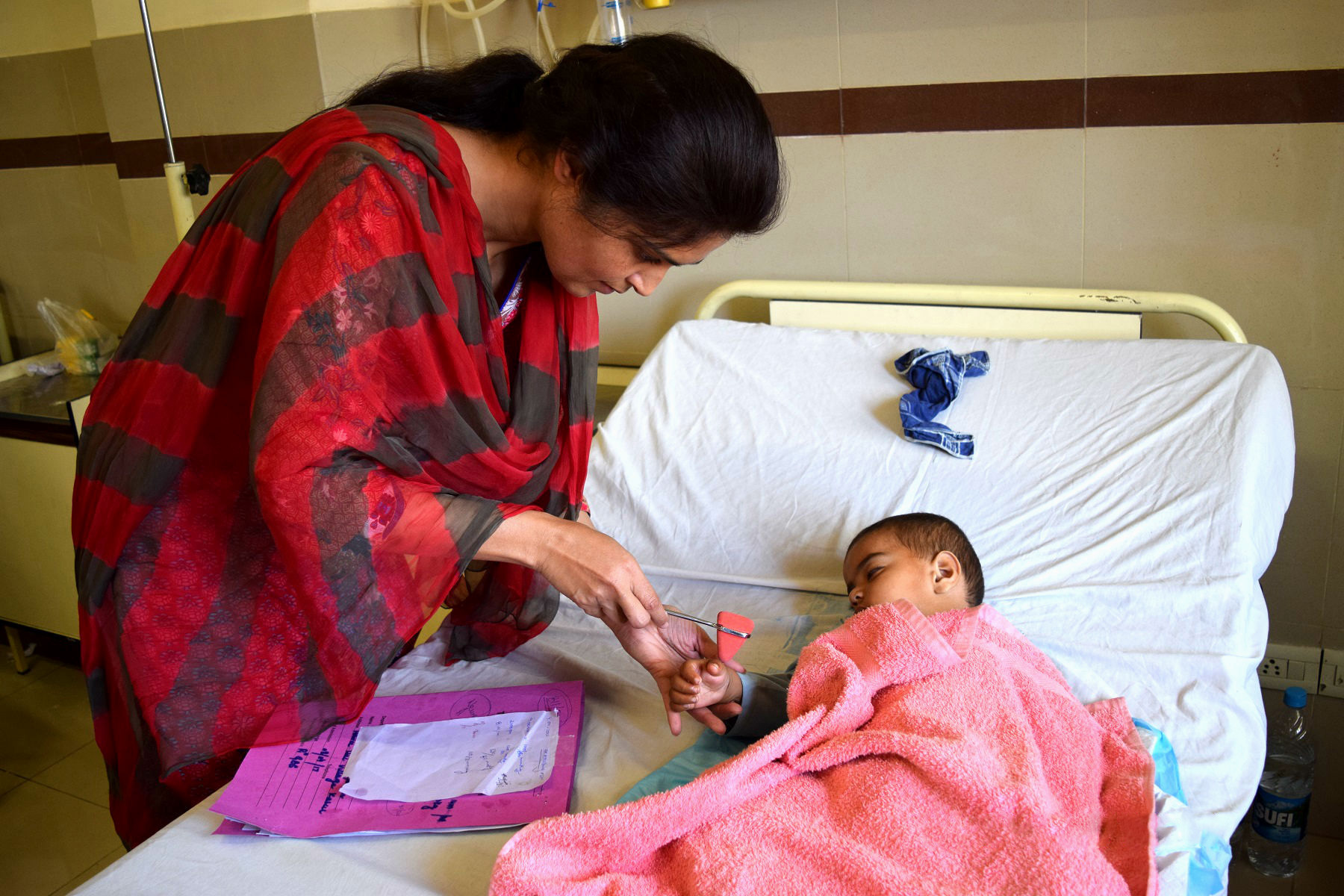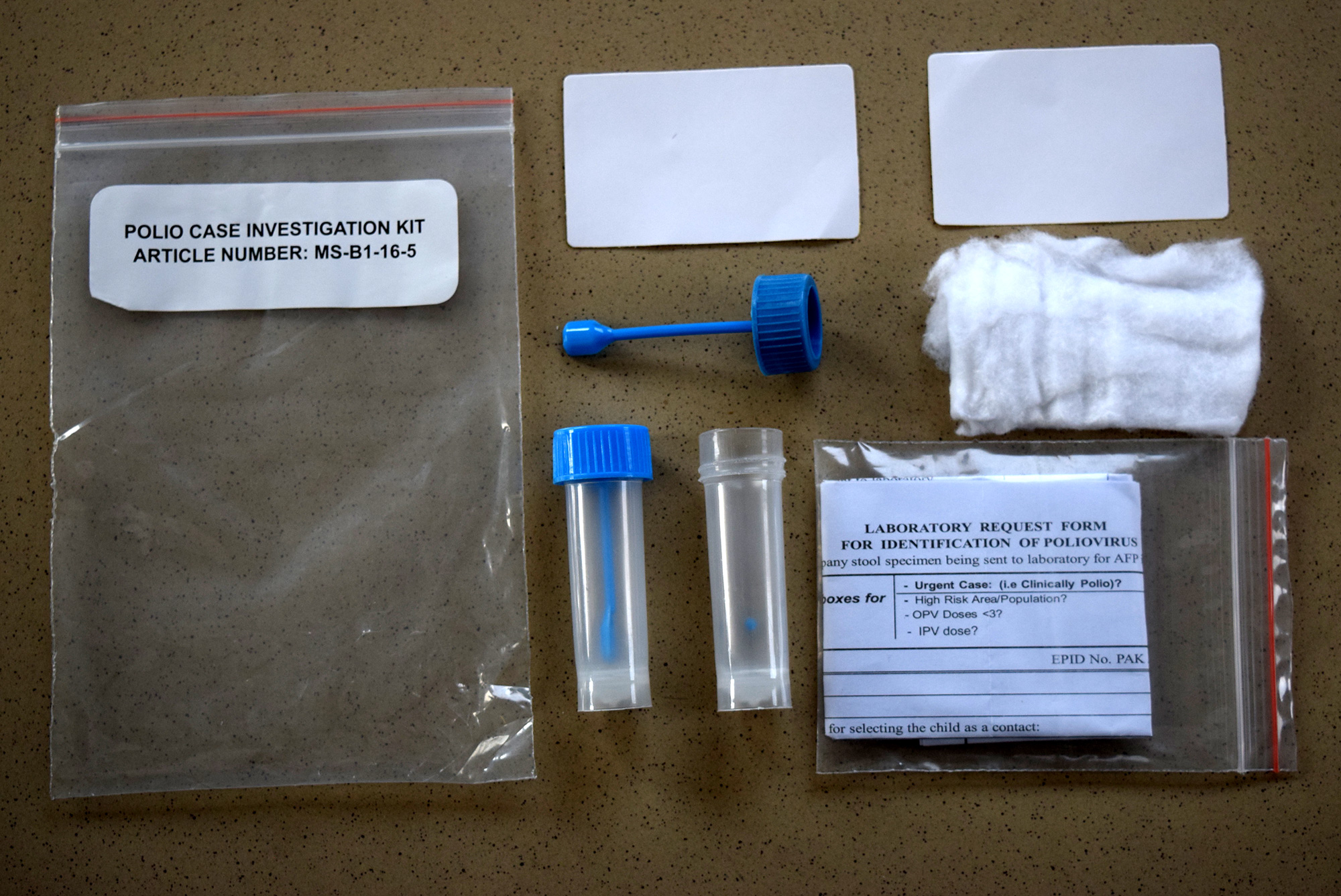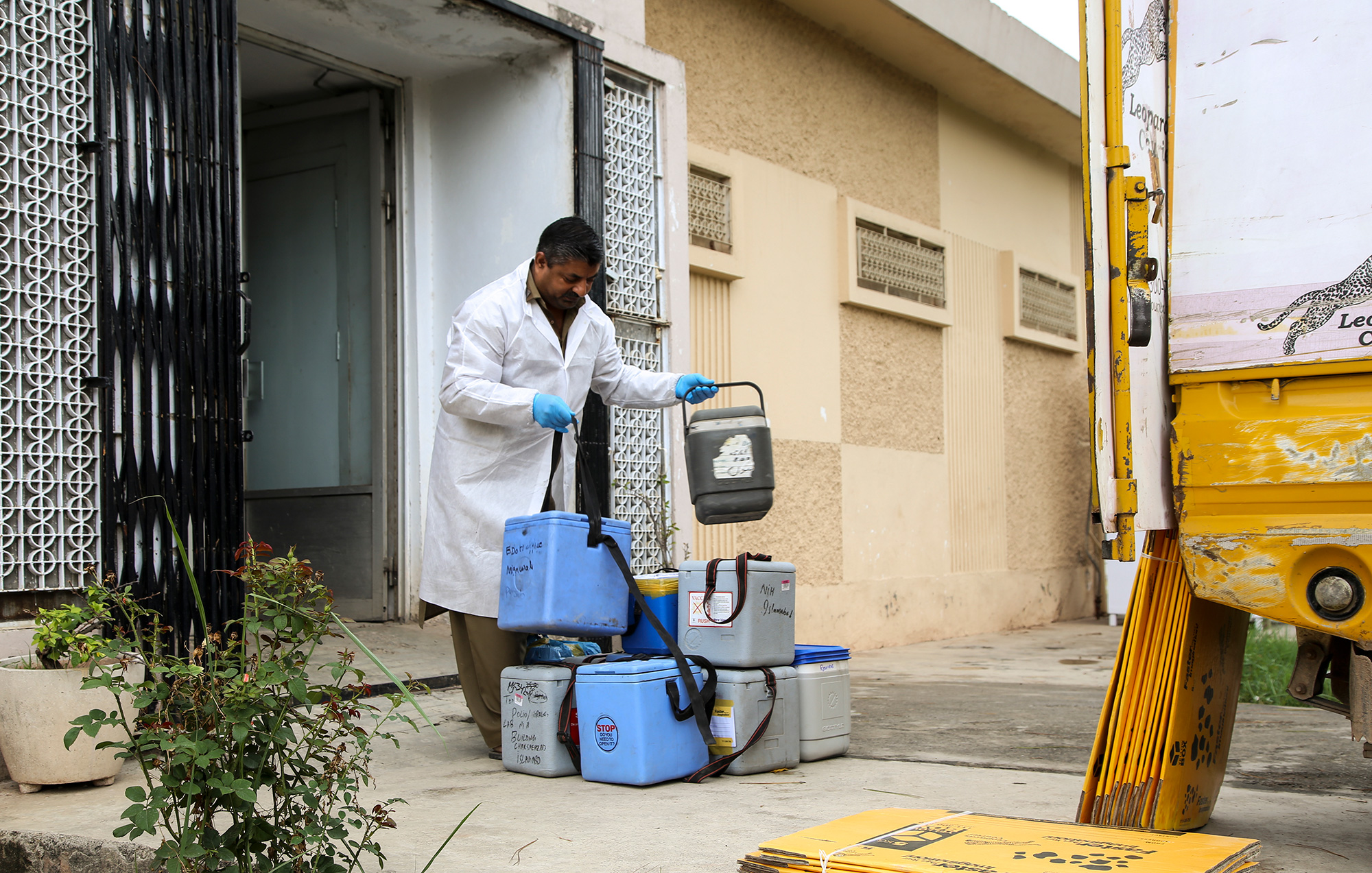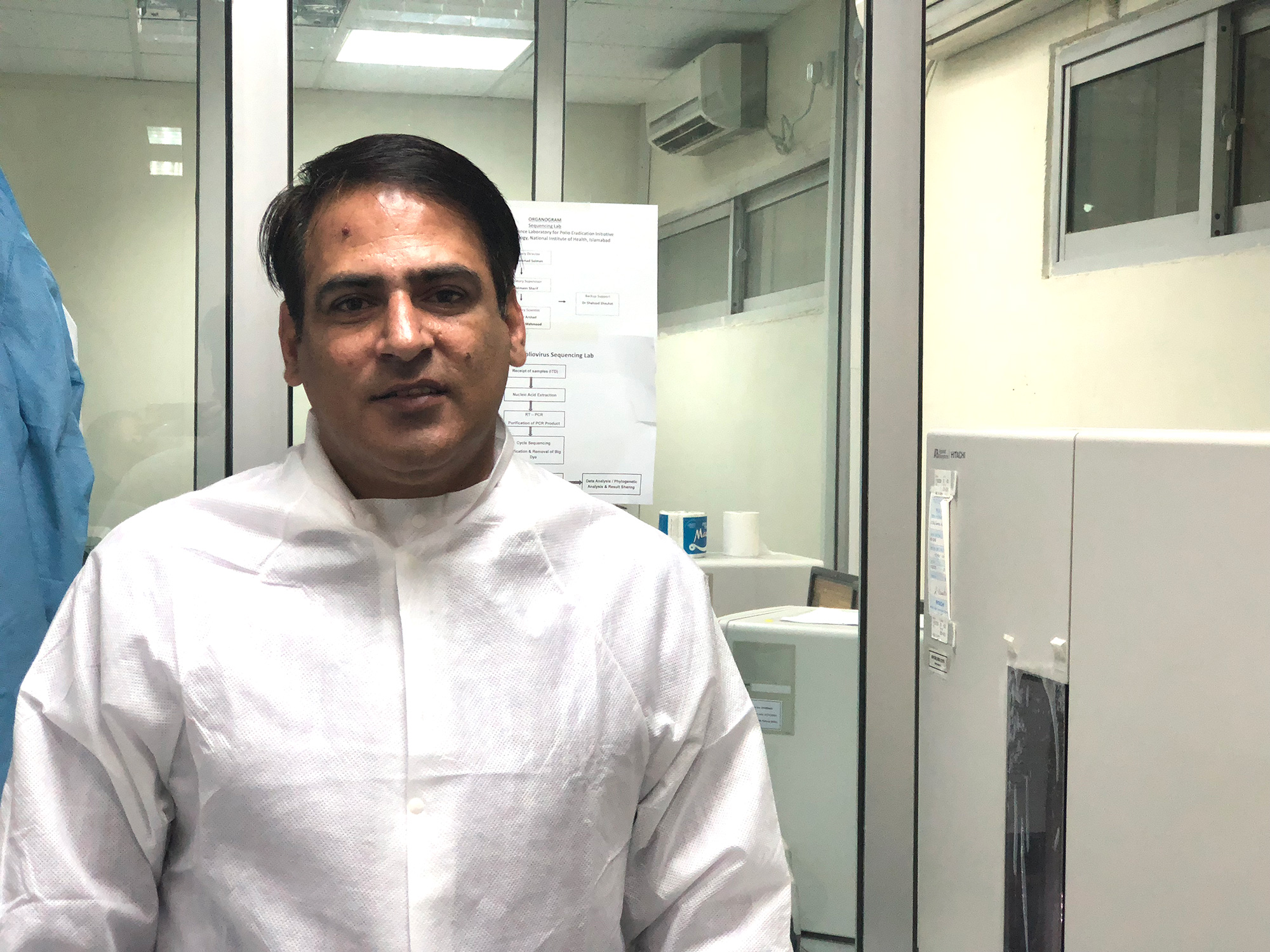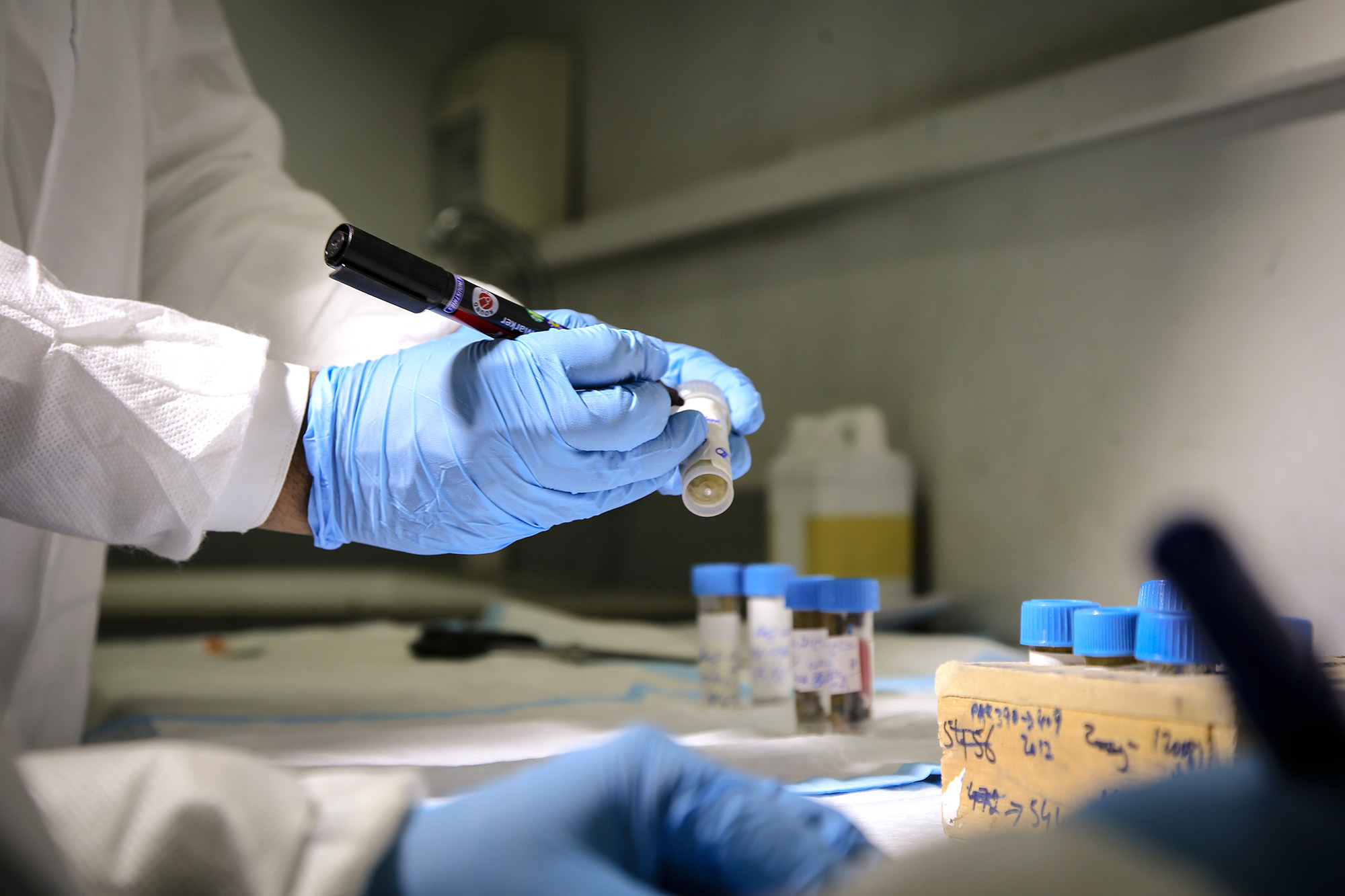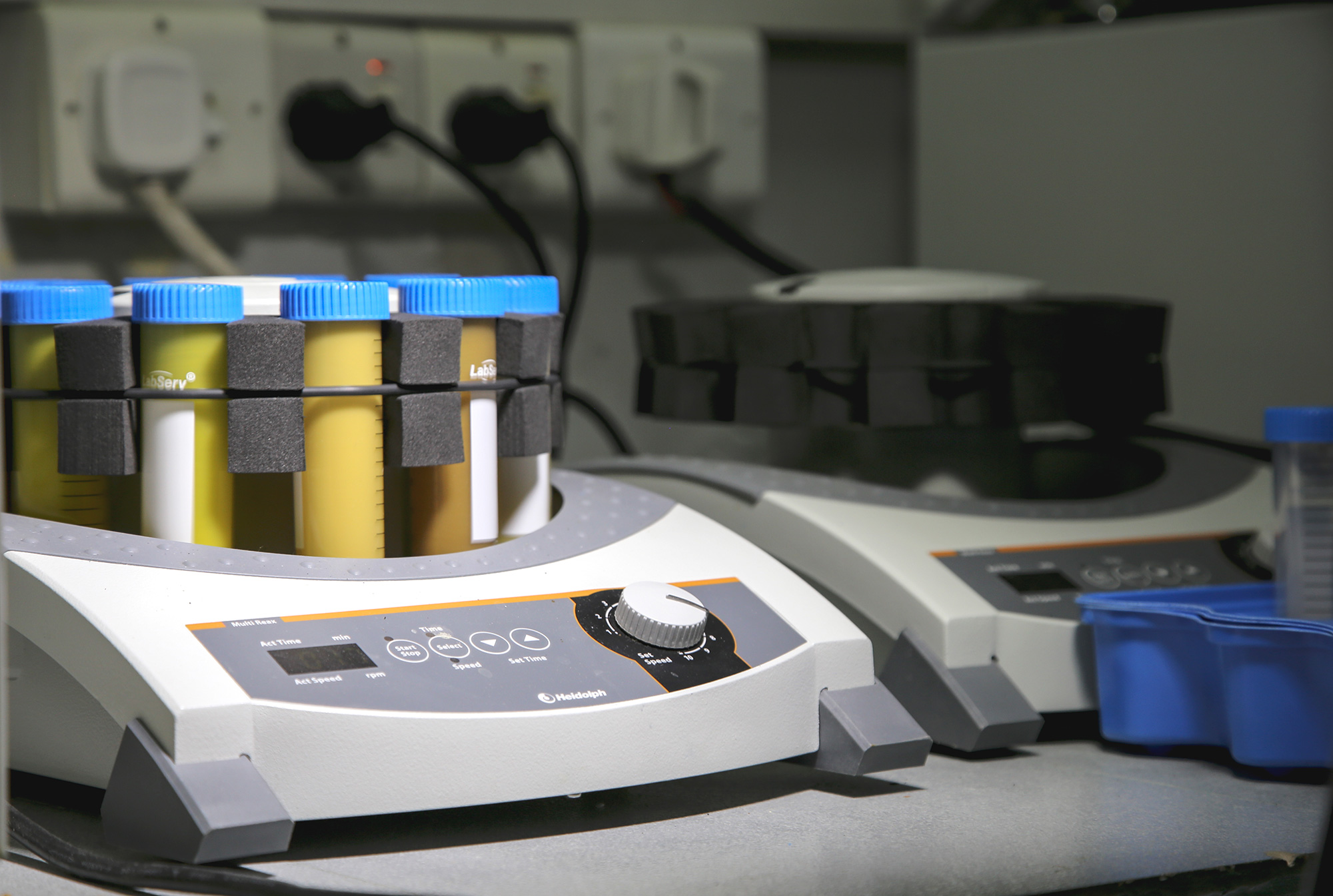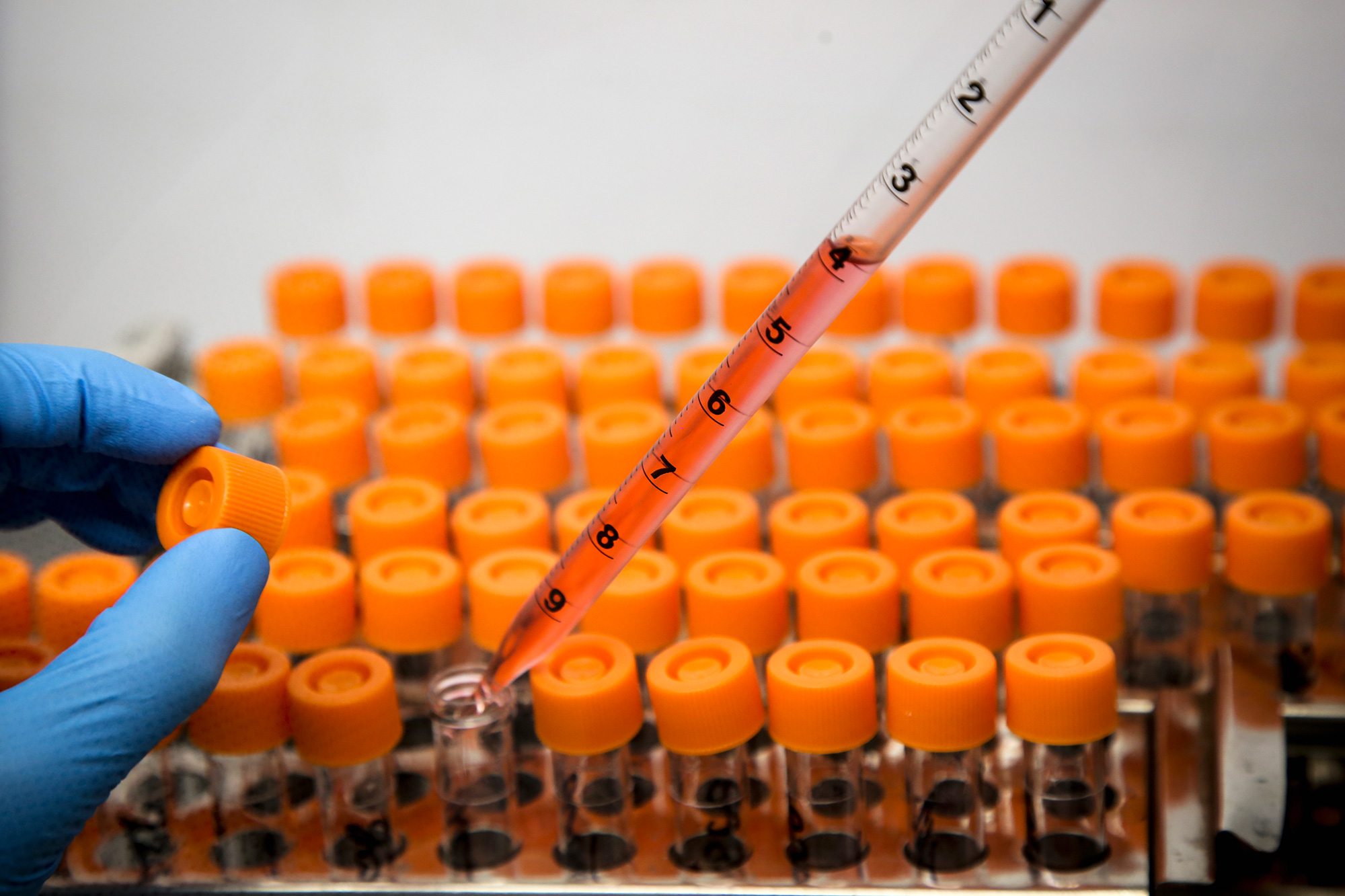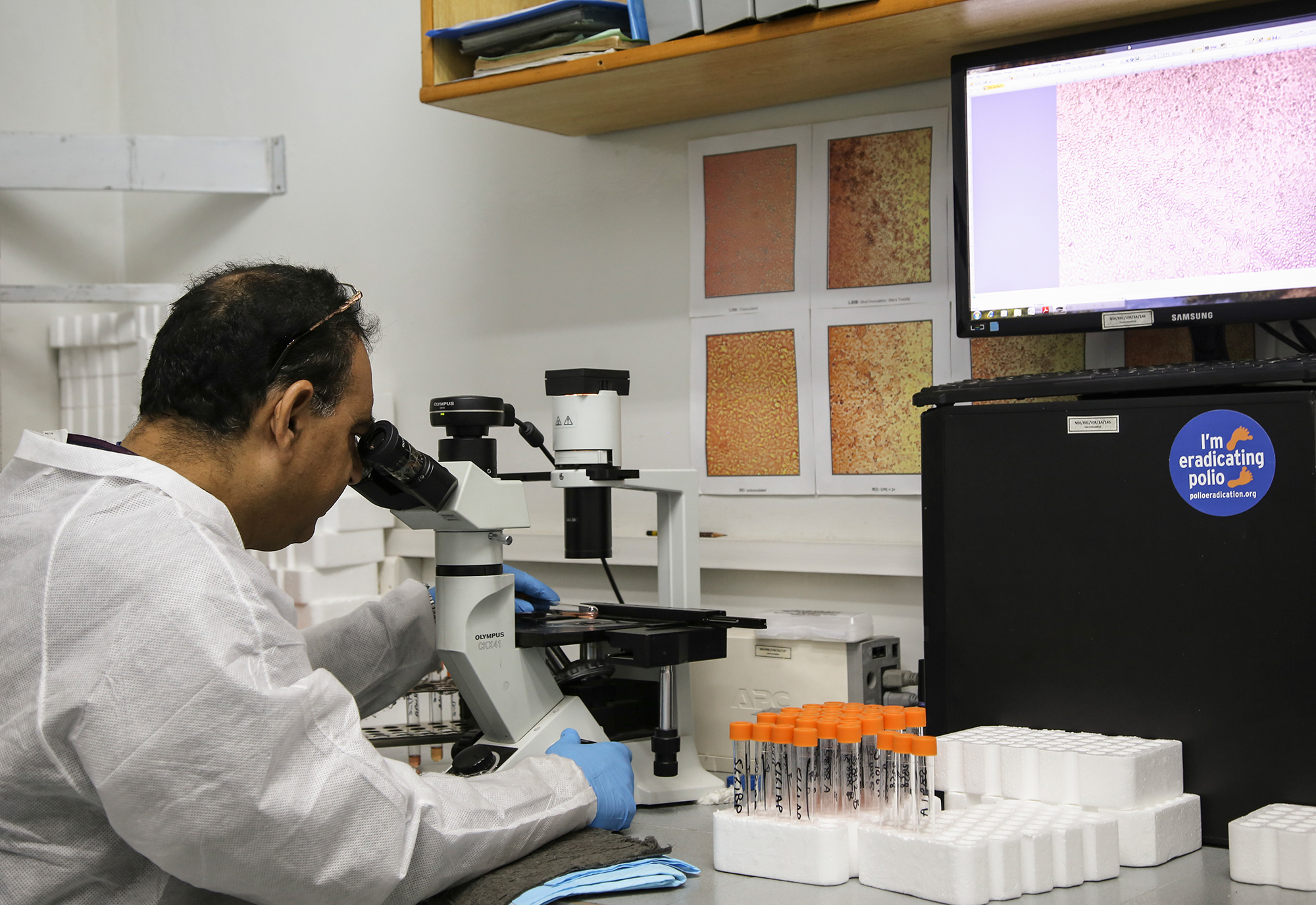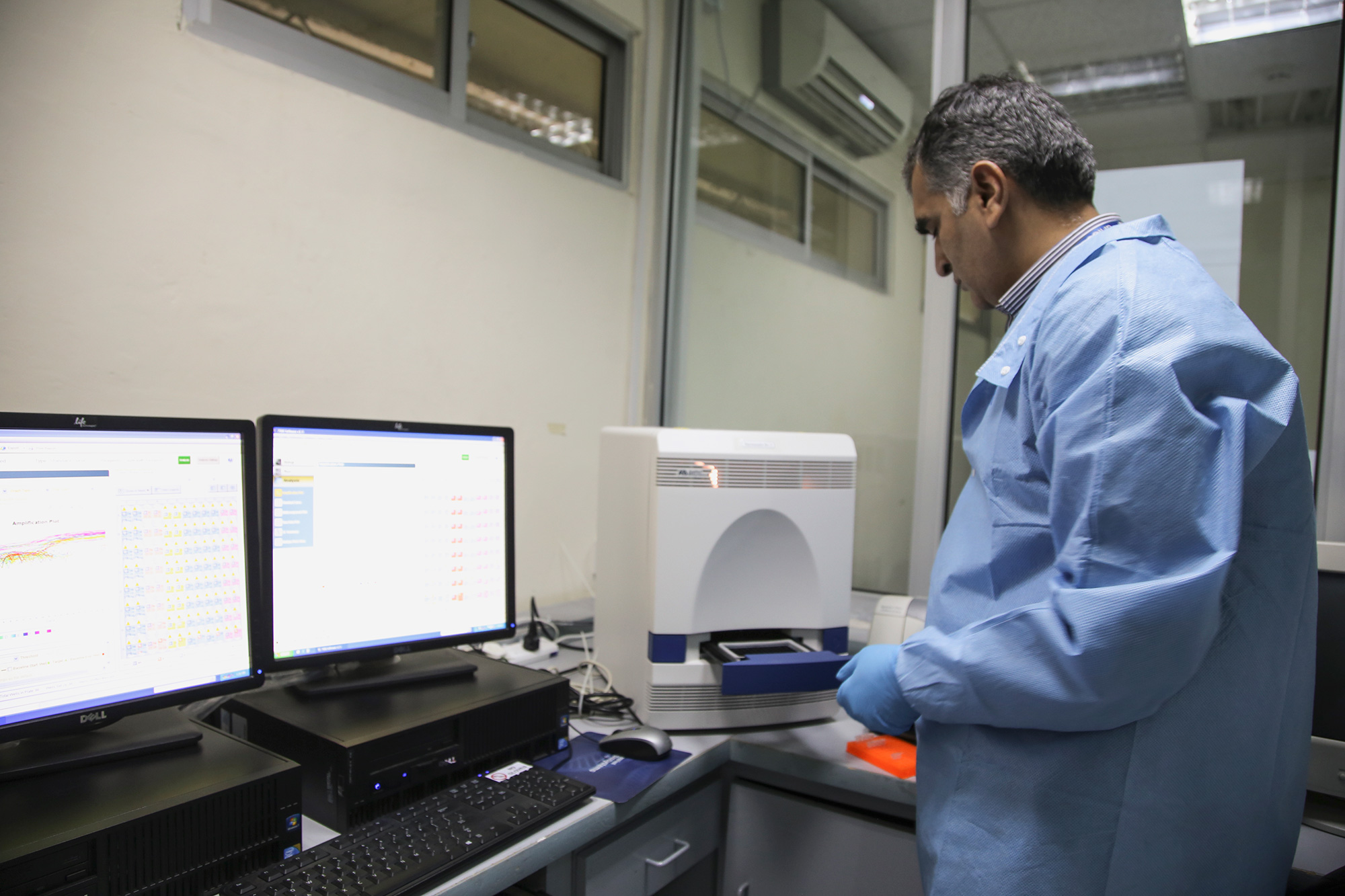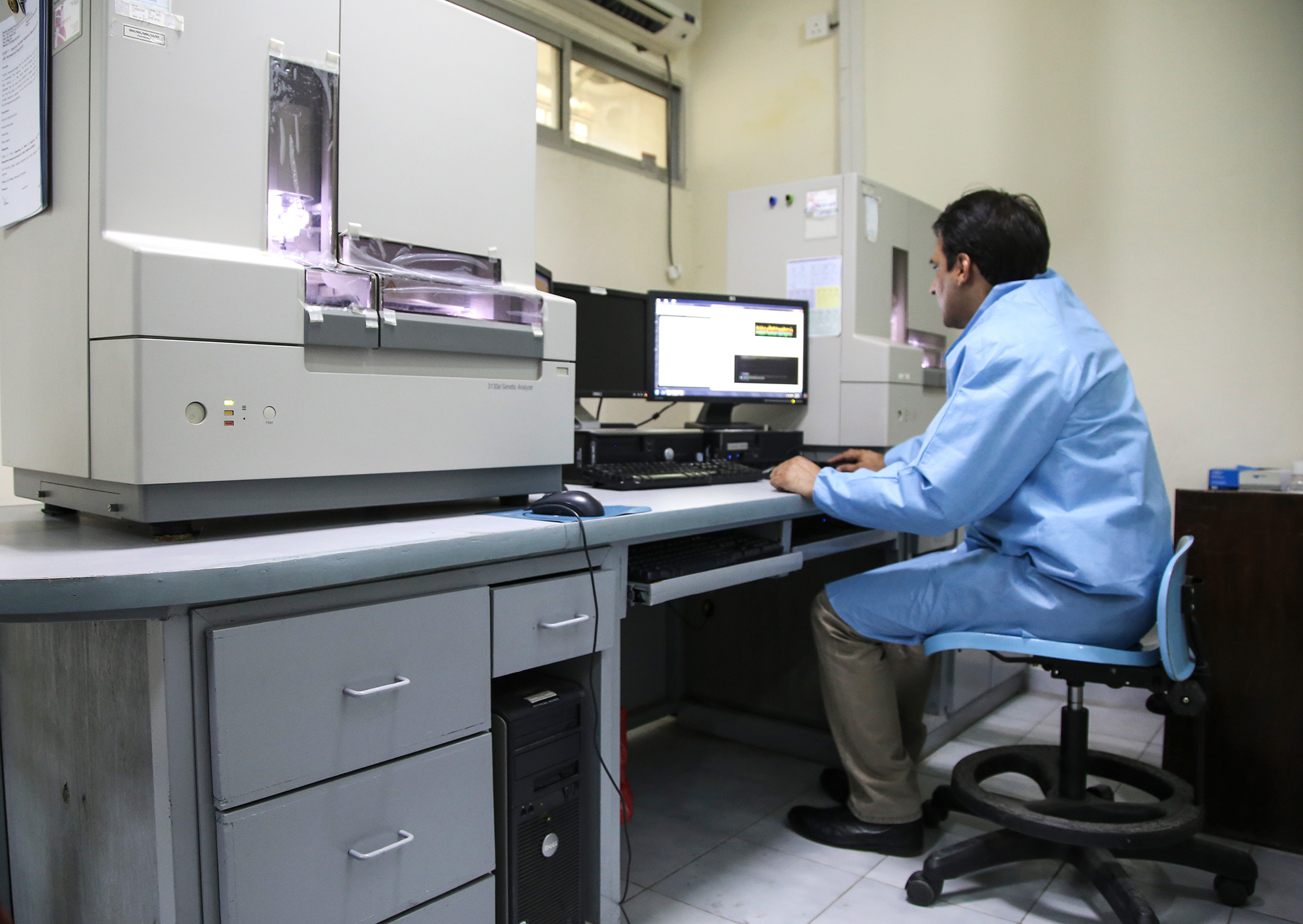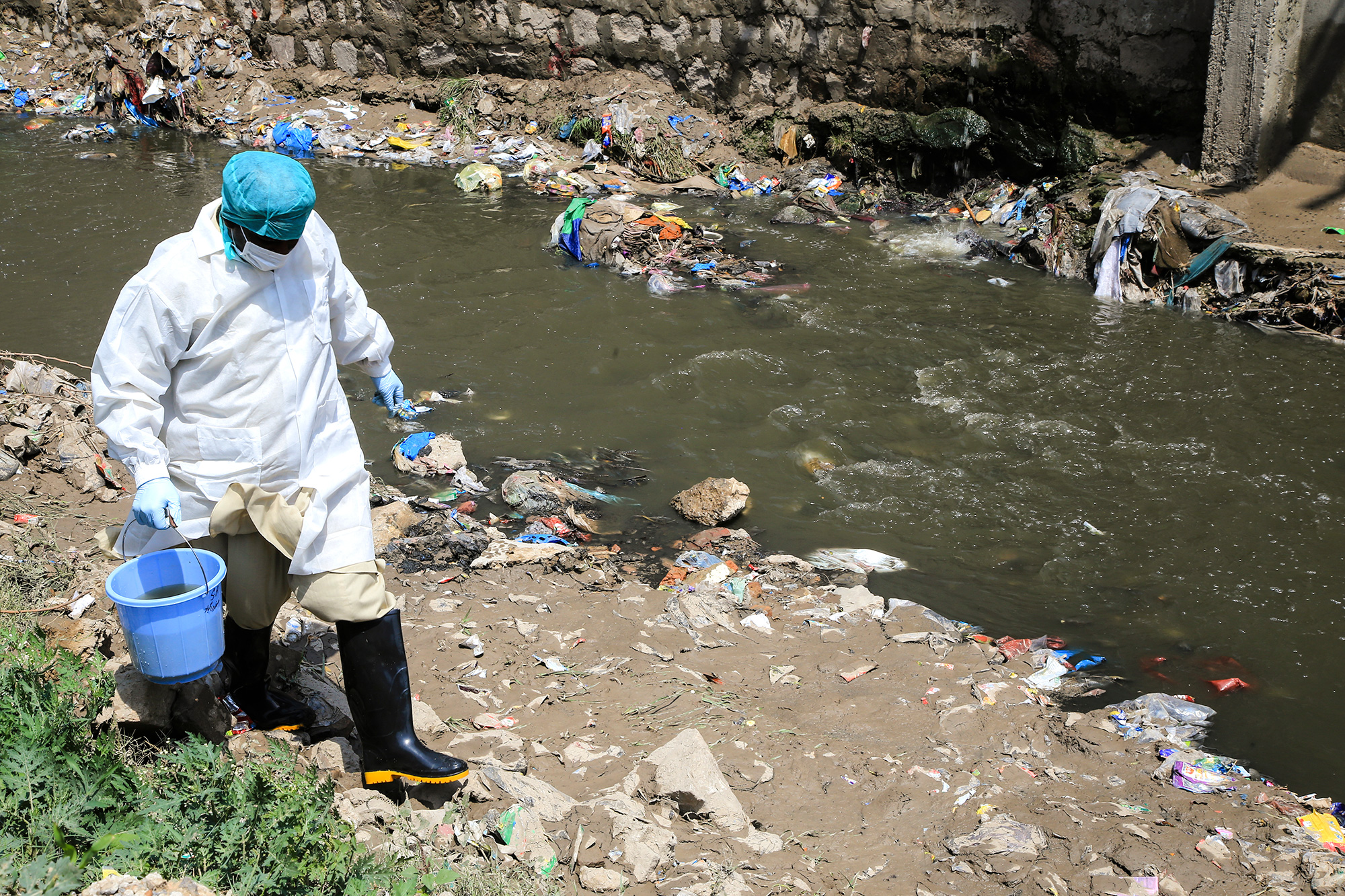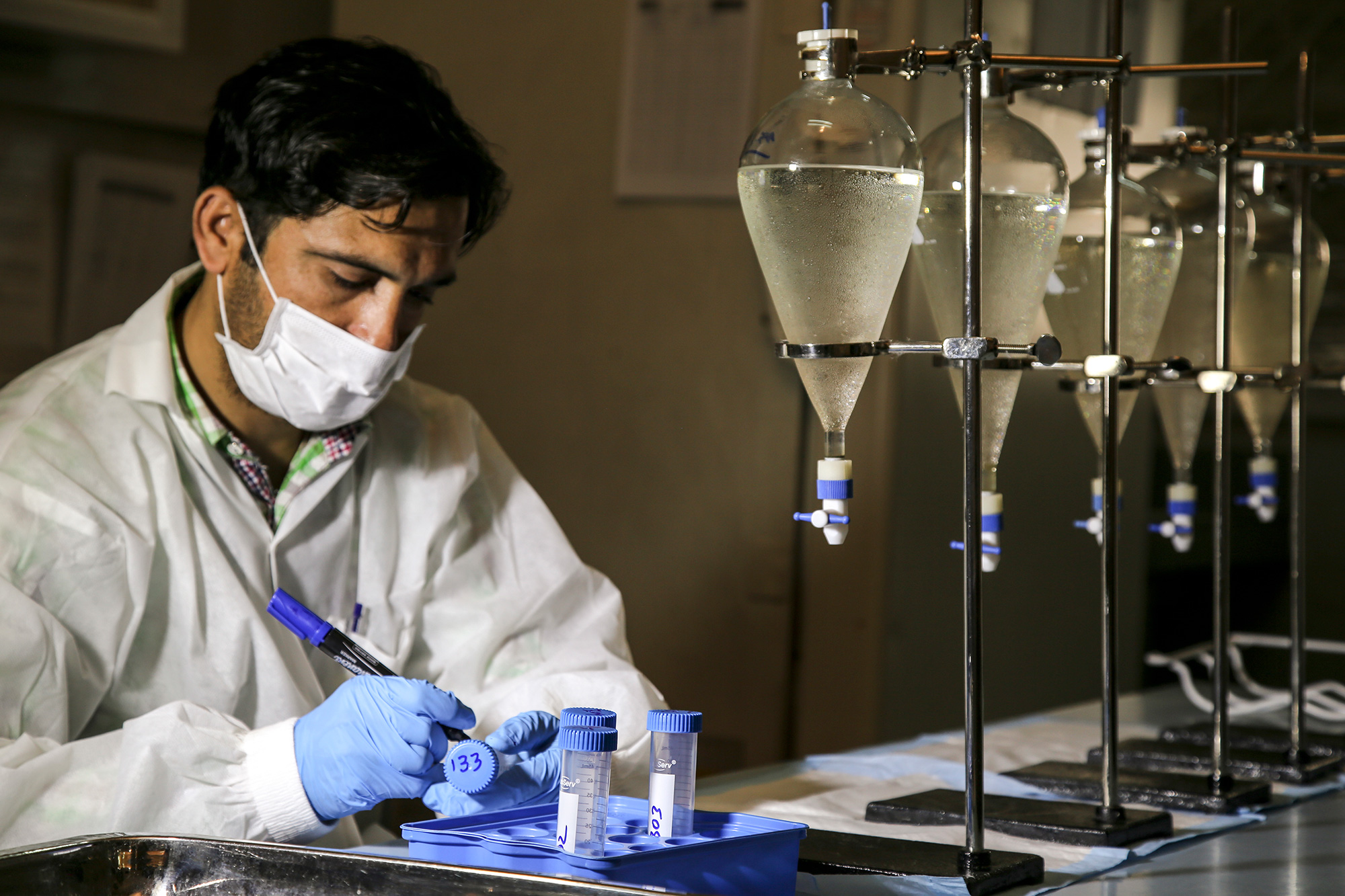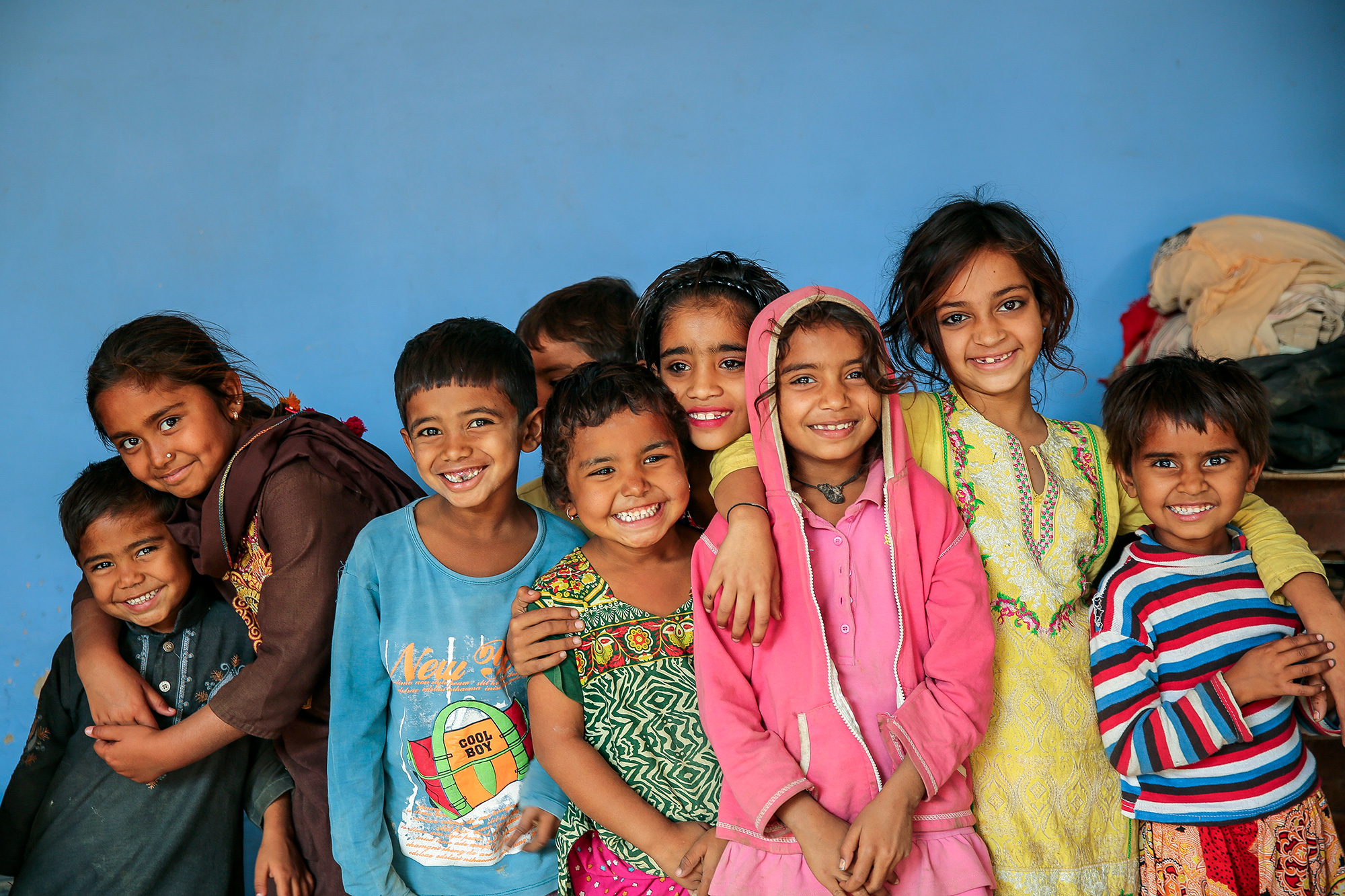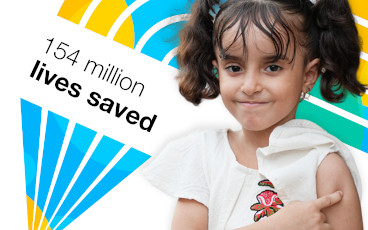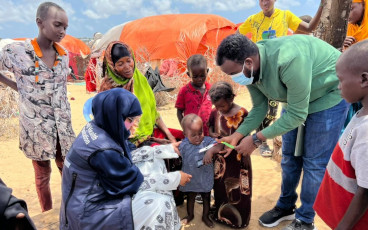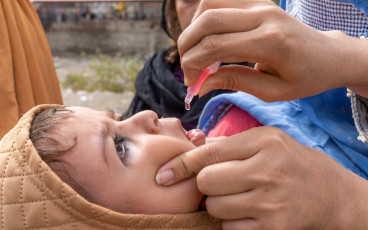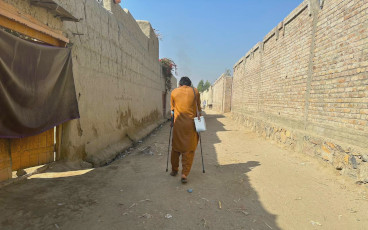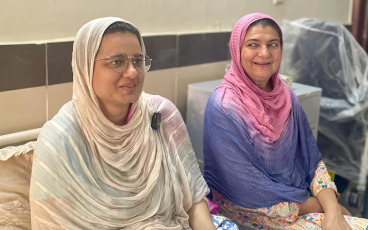26/03/2018
Endemic countries, Innovation, Research, Surveillance
Pakistan
The journey of a stool sample: Understanding polio surveillance
In Pakistan and across the world, the poliovirus surveillance system and laboratory network are critical to eradication efforts.
Surveillance is one of the main pillars of the polio eradication initiative. By testing stool samples collected from children suffering acute flaccid paralysis – the clearest symptom of the virus – as well as samples taken from sewage water, we are able to find the poliovirus wherever it is hiding.
Pakistan’s polio surveillance system is one of the largest ever established in the world. Click through these pictures to learn about the journey of a stool sample there: From a child with suspected polio to the laboratory.
Related News
24/04/2024
By Dr Hamid Jafari, Director, Polio Eradication, WHO Eastern Mediterranean Region
11/03/2024
Women play central, diverse and multifaceted roles in safeguarding children from polio, proving that investments in women’s capacities and skills translate into investments in strengthening health systems.
08/03/2024
The Female Mobiliser Vaccinator (FMV) programme supported by UNICEF and partners continues to play a critical role in efforts to reach every child and end polio in the country.
04/03/2024
A polio survivor in Nangarhar shares his challenges and advises parents to vaccinate their children
07/02/2024
The frontline worker who lost her feet in a train accident, but never the resolve to eradicate polio from Pakistan


